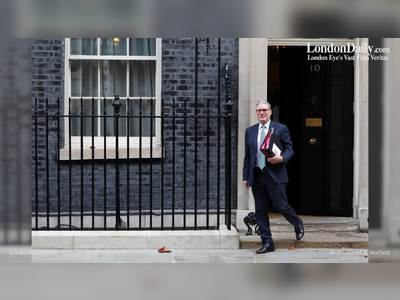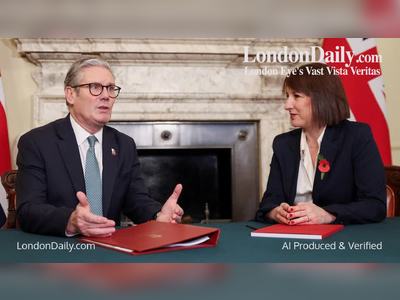UK Commentator Sami Hamdi Returns Home After US Visa Revocation and Detention
British political analyst says his detention was ‘an attack on Americans and the rights of Americans themselves’ amid a broader speech-freedom dispute
British political commentator Sami Hamdi arrived back in London on Thursday after being held in United States immigration custody following the revocation of his visa during a speaking tour.
He described the experience as less an assault on him personally and more a challenge to the freedom of expression that Americans themselves enjoy.
Hamdi was detained by the U.S. Immigration and Customs Enforcement (ICE) at San Francisco International Airport on 26 October, after his visa was cancelled without prior notice while he was on a tour that included speeches on U.S. and Israeli-Palestinian policy.
U.S. officials say the visa was revoked under security provisions and label him a “terrorist sympathiser” for alleged praise of the Hamas attacks of 7 October 2023; Hamdi contests that the footage was edited and says he consistently denounced violence.
Legal counsel working with the Council on American‑Islamic Relations (CAIR) note that no criminal charges were brought and that Hamdi accepted a voluntary departure from the U.S., free to apply for a new visa in future.
Supporters argue the detention was politically motivated and warn it may deter journalists, commentators and speakers from visiting the U.S.
While in custody, Hamdi says he suffered health-related issues and witnessed harsh conditions for other detainees, including prolonged stays without seeing a judge — distortion, he believes, of America’s ideals.
“What they want is to ensure that people like us don’t go to America,” he said, vowing to continue speaking and to reapply for entry.
The incidents come amid a broader crackdown on foreign visitors and visa revocations tied to political speech or advocacy relating to the Middle East.
Hamdi’s case is seen by free-speech and press-freedom advocates as a test of how far U.S. immigration powers may be used to limit commentary on Israel and Gaza abroad.
On arrival in London, Hamdi emphasised that the episode was “an attack on the freedoms of ordinary Americans and citizens worldwide.” He said American public opinion on the Israeli-Palestinian conflict was shifting and that his detention was part of the “hysteria” of those resisting that change.
Hamdi is now considering legal action against U.S. authorities for what he calls a “botched” detention.
The British government has affirmed that it is in contact with the family and monitoring the case.
For now, his return to the UK marks the end of a three-week ordeal, even as questions linger over the scope of U.S. visa revocations and the rights of commentators travelling to the country.
He described the experience as less an assault on him personally and more a challenge to the freedom of expression that Americans themselves enjoy.
Hamdi was detained by the U.S. Immigration and Customs Enforcement (ICE) at San Francisco International Airport on 26 October, after his visa was cancelled without prior notice while he was on a tour that included speeches on U.S. and Israeli-Palestinian policy.
U.S. officials say the visa was revoked under security provisions and label him a “terrorist sympathiser” for alleged praise of the Hamas attacks of 7 October 2023; Hamdi contests that the footage was edited and says he consistently denounced violence.
Legal counsel working with the Council on American‑Islamic Relations (CAIR) note that no criminal charges were brought and that Hamdi accepted a voluntary departure from the U.S., free to apply for a new visa in future.
Supporters argue the detention was politically motivated and warn it may deter journalists, commentators and speakers from visiting the U.S.
While in custody, Hamdi says he suffered health-related issues and witnessed harsh conditions for other detainees, including prolonged stays without seeing a judge — distortion, he believes, of America’s ideals.
“What they want is to ensure that people like us don’t go to America,” he said, vowing to continue speaking and to reapply for entry.
The incidents come amid a broader crackdown on foreign visitors and visa revocations tied to political speech or advocacy relating to the Middle East.
Hamdi’s case is seen by free-speech and press-freedom advocates as a test of how far U.S. immigration powers may be used to limit commentary on Israel and Gaza abroad.
On arrival in London, Hamdi emphasised that the episode was “an attack on the freedoms of ordinary Americans and citizens worldwide.” He said American public opinion on the Israeli-Palestinian conflict was shifting and that his detention was part of the “hysteria” of those resisting that change.
Hamdi is now considering legal action against U.S. authorities for what he calls a “botched” detention.
The British government has affirmed that it is in contact with the family and monitoring the case.
For now, his return to the UK marks the end of a three-week ordeal, even as questions linger over the scope of U.S. visa revocations and the rights of commentators travelling to the country.









